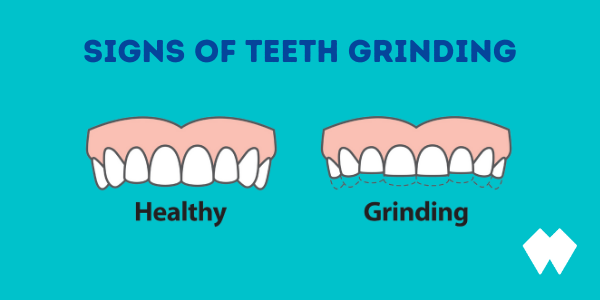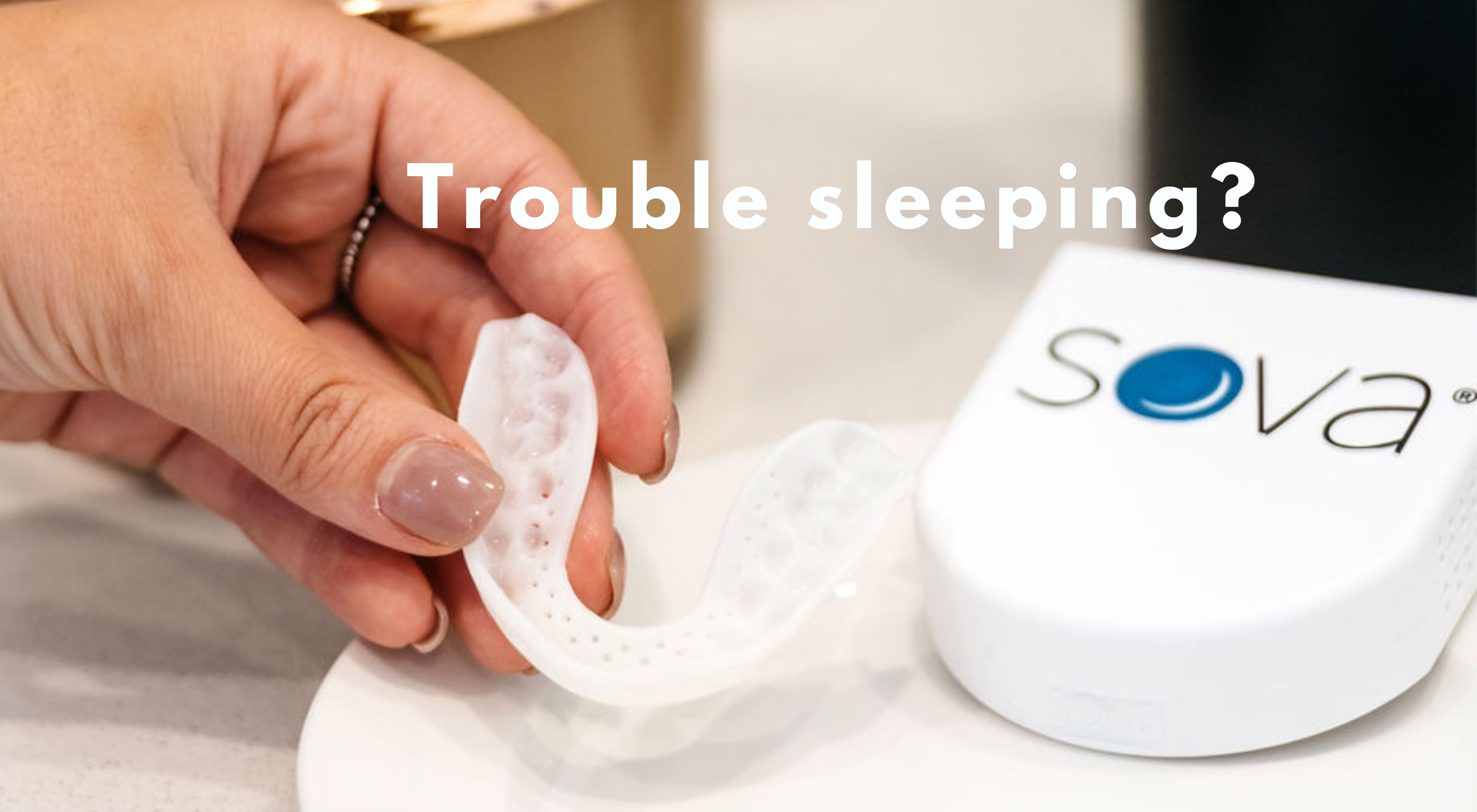Teeth Grinding/Bruxism: The Signs and Symptoms
Do I need a night guard?
Teeth grinding or bruxism is a common condition for many Australian adults (and children). If you grind your teeth or clench your jaw at night, then you may be suffering from bruxism and a night guard (or sleep mouthguard as they are sometimes referred to) may offer a simple solution for protecting your smile and getting a better night’s sleep. Have you ever woken up with jaw pain, tension headaches or had a family member tell you that they couldn’t sleep because your teeth gnashing was keeping them awake? We understand what you are going through each night, so read on to find out more about the potential triggers, symptoms and treatments options available.

Do you wake up with a sore jaw or tension headache?
‘Awake’ bruxism and ‘sleep’ bruxism exhibit very similar symptoms; however, awake bruxism is more frequently noted to be a formed habit or generated from current stress factors. Whilst sleep bruxism also shares these triggers, it has also been noted as a movement disorder that will likely lead to or co-exist with other sleep disorders, such as: snoring or sleep apnea. If left untreated, bruxism can have a significant impact on your day-to-day life (jaw disorders, damaged teeth, headaches and potential mental health implications); however, treatment options are relatively simple (such as a night guard and/or reducing stress factors where possible).
Symptoms of teeth grinding/bruxism:
- Reports from your partner that you are waking them at night with grinding or gnashing sounds
- Increased tooth sensitivity to foods, drinks or breathing cold air
- Worn down enamel (exposing nerve endings and creating tooth sensitivity
- Flattened, chipped or loose teeth (see image below)
- Muscle strain or discomfort in your jaw, ear and/or neck
- A ‘locked jaw’ that is difficult to open or close
- Tension headaches (particularly in the morning)
- Sleep disruption or waking up tired

Flattened or chipped teeth are a sign of teeth grinding.
Causes of bruxism:
- Awake Bruxism: The physical and psychological factors associated with stress may lead to awake bruxism becoming a periodic or long term (habit) diagnosis. Genetic factors may also be considered.
- Sleep bruxism: Includes subconscious chewing behaviours and stimulations, as well as the causes of awake bruxism (stress, habits and genetic factors.
Triggers of teeth grinding/bruxism:
- An increase in stress can lead to teeth grinding or a higher severity of teeth grinding (leading to it become more noticeable to yourself and others). People that are highly competitive or in demanding careers may also experience teeth grinding.
- Family history or genetics can be an underlying reason for bruxism. Speak to your family members to understand if there is a history of teeth grinding or jaw clenching. Please note, that the understanding of teeth grinding as risen in recent years, so some family members may be unaware of any potential bruxism issues they may have experienced in the past.
- Medications such as antidepressants, tobacco or caffeinated drinks may also increase the likelihood of bruxism developing.
- Age also plays an important role for teeth grinding in children, as most children will grind their teeth at some point. There are many ongoing studies about the causes of bruxism in children; however, most are often for a temporary period of time. You should inform your dentist if you notice your child is grinding their teeth or clenching their jaw. The SOVA Junior Night Guard has been specifically designed for child sized dental arches.
Short and long term complications of teeth grinding:
- Damage to your natural teeth, restorations, veneers or crowns
- Reoccurring tension headaches (particularly in the morning through the temples)
- TMJ Disorder (a ‘clicking’ jaw that may need a specialised guard to disengage the muscle)
- Facial pain ranging from mild to severe
- Lack of sleep for yourself or your partner
- Mental health implications triggered by long term pain or lack of quality sleep
Treatment for teeth grinding:
- A sleep mouthguard (night guard) – We recommend looking for a custom fit, thin and breathable night guard. A night guard can take some time to get used to sleeping with it in, so you will need to allow yourself some time to adjust.
- Reduce stress factors where possible
- Reduce caffeine intake (particularly in the afternoon and evening)
- Jaw and neck exercises to adjust/align to the proper position
- Create a bedroom environment that in conducive to good sleep (dark, quiet, consistent setting)
- Discussing your medications with your doctor to see if they may be contributing to or increasing the severity of your bruxism
- Muscle relaxants or injections may be prescribed by your doctor for severe cases.
- Dental intervention such as: jaw realignment, restorations or veneer replacements (severe cases that have tried other treatments over time)
Please note, that night guards for teeth grinding can differ significantly in price or quality, so always do your research to find the best night guard for your needs. We endorse and sell the SOVA Night Guard range to customers with varying dental splint needs, as they can be custom fit at home within minutes and are available at an affordable price.

A SOVA Night Guard may be the right solution for your teeth grinding.
If you are suffering from teeth grinding or bruxism, it is more common then you think and taking action today could prevent excess damage to your teeth and potentially expensive dental intervention. Remember that your dentist is always happy to discuss any concerns or symptoms that you may be experiencing.

